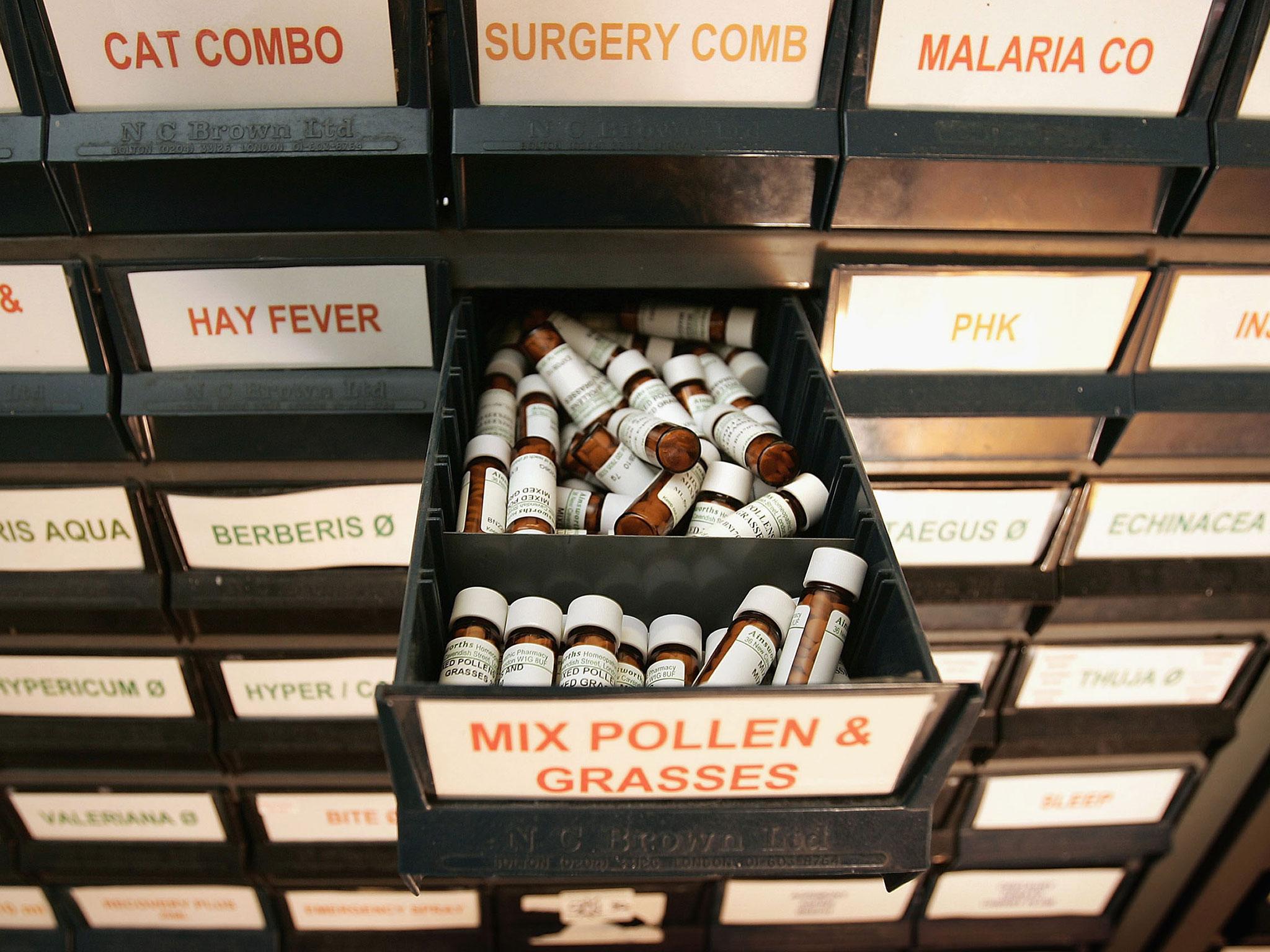Russian Academy of Sciences says homeopathy is dangerous 'pseudoscience' that does not work
Damning report urges people to treat homeopathy 'on a par with magic'

Your support helps us to tell the story
From reproductive rights to climate change to Big Tech, The Independent is on the ground when the story is developing. Whether it's investigating the financials of Elon Musk's pro-Trump PAC or producing our latest documentary, 'The A Word', which shines a light on the American women fighting for reproductive rights, we know how important it is to parse out the facts from the messaging.
At such a critical moment in US history, we need reporters on the ground. Your donation allows us to keep sending journalists to speak to both sides of the story.
The Independent is trusted by Americans across the entire political spectrum. And unlike many other quality news outlets, we choose not to lock Americans out of our reporting and analysis with paywalls. We believe quality journalism should be available to everyone, paid for by those who can afford it.
Your support makes all the difference.The Russian Academy of Sciences has become the latest body to declare homeopathy has “no scientific basis” and endangers people who believe it to be effective.
A memorandum issued by the the Commission Against Pseudoscience and Falsification of Scientific Research described the “treatments” as pseudoscientific, saying that attempts to verify their success had failed for over 200 years.
“Homeopathy is not innocuous: patients spend heavily on non-performing drugs and neglected means of treatment with proven effectiveness,” a statement said.
“This can lead to adverse outcomes, including death of the patient.”
Homeopathy, which has become a popular method of alternative medicine across the Western world, is based on the principle of “like treats like” and follows ideas developed by a German doctor called Samuel Hahnemann in the 1790s.
It sees practitioners dilute substances that cause certain symptoms, using the “succussion” method, in the belief the substance can cause the body to heal itself.
But Russian researchers said numerous proposed explanations “contradict known chemical, physical and biological laws” and could not be verified.
“Homeopathy originated in an era when the most important principles of the chemistry and biology of the molecule properties and existence of microbes had not yet been accepted,” they said.
“[We call on the media] to present homeopathy as a pseudoscience on a par with magic, healing and psychic practices.”
The memorandum said homeopathy should not have a place in Russia’s national health system, making recommendations to the ministry of health and other bodies to introduce mandatory labelling stating homeopathy is not proven to work and “protect citizens from misleading advertising”.
The same recommendation was made by the American Federal Trade Commission in November, with the government agency requiring that producers need to state that “there is no scientific evidence that the product works” on packaging.
Australia’s National Health and Medical Research Council said was no evidence that homeopathy was effective in 2015, when a the University of Barcelona also scrapped its course in the “treatment” following the death of a six-year-old boy.
In the UK, two NHS hospitals offer homeopathy as well as some GP services, despite the body declaring that “there is no good quality evidence that homeopathy is an effective treatment”.
A report released in 2010 by the House of Commons Science and Technology Committee said that homeopathic remedies perform no better than placebos, and that the principles on which homeopathy is based are “scientifically implausible”.
Join our commenting forum
Join thought-provoking conversations, follow other Independent readers and see their replies
0Comments